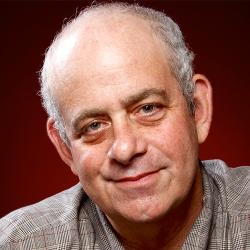To look at George Pataki’s poll numbers, mired between zero and 1 percent, it’s hard to imagine the former New York governor stealing the Republican presidential nomination. Until you walk the streets of Syracuse and encounter … Pataki Fever?
OK, maybe that’s a stretch. But on a Pataki-inspired sojourn that carried me the six-mile breadth of Syracuse — my Walkie for Pataki — I took the pulse of the patient in the heart of the state he once ruled with a tin fist. Conclusion: While the Pataki campaign looks deader than the Syracuse University basketballteam’s Final Four dreams, don’t disconnect the oxygen pump yet.
My field study wasn’t scientific. I avoided whole neighborhoods because guns scare me. Also, I forgot my flask. Nonetheless, a pattern emerged. Regardless of what the polls show nationally, no presidential candidate boasts lower negatives locally.
Asked what she thinks of Pataki, SU freshman Kate Weyante asked a question of her own: “What is it?” Kate soon corrected herself and pulled from the deep recesses of her experience the fact that Pataki is a former governor — a threetermer, no less.
But the point still holds: At a time when disgust with politicians has hit pandemic levels, Pataki generates almost none of that hostility.
At the Blarney Stone tavern near the starting point of my odyssey, I asked cook D. Mack what comes to mind when he hears George Pataki’s name. “George Pataki, what comes to mind?” Mack said, sounding like a Wheel of Fortune contestant in need of a vowel. “Not a damn thing.”
Responses like those underscore why Pataki vowed last week to stay in the race, despite rumors of an imminent withdrawal. He sounded upbeat, as he should. “I’m in it,” he told Fox News. “I’m not gonna pull a Scott Walker.”
And so the question arises: With Syracuse as the flashpoint, could Pataki’s amiable brand of empty suitism propel him to high office — again?
One possible road map involves GOP frontrunner Donald Trump finally crossing the line (if there is a line anymore) and blurting something so offensive that even he has to declare he’s unfit to be president. A comment to the effect of “Here’s my one-word solution for childhood obesity: heroin” or “Why are witches protected from being burned at the stake, yet if you have carnal relations with a circus monkey you go to prison?” could create an opening for a mild-mannered Republican with nothing to say.
Make that little to say. Pataki did recently stand tall on an issue that resonates powerfully with everyday Americans. He tweeted that documents leaker Edward Snowden shouldn’t have a Twitter account because he’s a traitor. That prompted a Twitter backlash from Snowden’s supporters, who branded Pataki the traitor. It also led to an awkward accounting: Pataki has 53,000 Twitter followers; Snowden has 963,000.
The kerfuffle didn’t hurt him in Syracuse. Outside SS. Peter and Paul Orthodox Church, Father Vladimir Kantor said of Pataki, “I have heard of him. I guess he was fairly benign.” Near East Genesee and Geddes Streets, I asked Dequan Grover, 24, what he thinks when he hears the name Pataki. “Nothing,” he said. Imagine what Eliot Spitzer would give to have a slate so clean.
My route took me west to east. I ambled through downtown, up to campus, to Westcott and finally to the DeWitt border at Nottingham Plaza. In Westcott, I met Mary Moore as she was letting her dog, Jaf, do his business. The mention of Pataki confused her initially. “He was mayor … no! He was governor,” she auto-corrected.
Moore added that Jaf only walks on pavement and always stays off grass. Coincidentally, some analysts believe that whoever believes Pataki can be president needs to stay off grass as well. Perhaps, but listen to Mike Curry of Central Square, who was running an errand on the West Side when I strolled by. “Hmmm, Governor Pataki,” he mused, as if asked to name the backup shortstop for the 1938 Philadelphia Athletics. Then it came to him: “Talks out of the side of his mouth. Literally and figuratively.”
It could be telling that another New Yorker with White House ambitions adopted a similar oratorical strategy, proclaiming, “I cannot talk out of both sides of my mouth.” His name was FDR.



